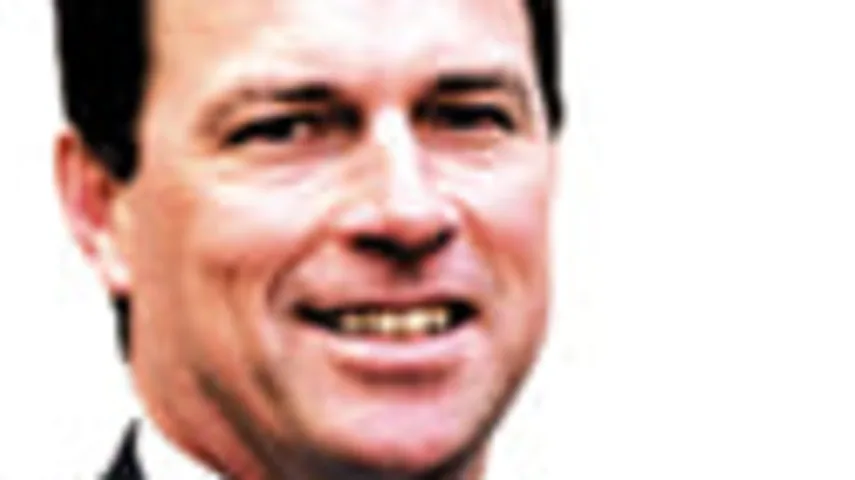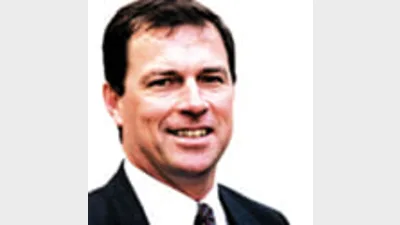Planning that lasts a lifetime



I want to put it to you that a financial planner is really a life coach and just like any other coach, their role is to change habits and get better outcomes for the person or people they are coaching.
The only difference is that the value a financial planner adds can’t be witnessed in just six weeks after following a fitness regime — the rewards pay off over a number of years. It takes discipline and it takes time.
So why is it that the financial planning profession struggles to clearly articulate to the broader Australian public the value they add in their relationship with clients?
Why is it a well-kept secret that is known to those who have a relationship with a planner but doesn’t seem to be understood by many industry commentators or critics? What could we be doing differently to spread the word?
Perhaps the best place to start is by blowing some of the misconceptions out of the water.
The greatest of these misconceptions is that a financial planner’s main task is to beat the market or to select the next best share to invest in. This leads many to the question of why people should pay money to planners in the current environment when asset values are falling. In reality, I do not know of any planner who guarantees they can beat the market, and if a planner promotes that as their value proposition, they are setting themselves up for a fall.
The value and strength of the relationship between a financial planner and a client is somewhat intangible, but by seeking and taking a planner’s advice, a family can be set up for life. The Australians out there who have a close relationship with their financial planner know exactly what I’m talking about.
For my wife and I, the strength of the relationship with our financial planner was recently put into perspective when we finished a review of our strategy and despite the fact that our asset values had decreased, my wife turned to me and said, “I always feel good after visiting that office”. This is exactly what you want from your planner: peace of mind and confidence in your future strategy.
It is the intimacy of the relationship between clients and planners that offers great value to clients. Over a period of time, a financial planner will achieve more for a family than any other professional — the value of their work will span generations.
What does a planner actually do to add value?
Very early in the process a planner will sit with a client to work out what goals or dreams they want to achieve in life. Now for many this can be a challenge, especially in a situation where a husband and wife can’t reach an agreement on what the future looks like.
Quite often, the planner will take on the guise of a counsellor or mediator in situations such as this. How do you put a value on this? I can’t think of another profession that actually asks you to think ahead about your life and plan your goals.
After identifying the goals and reviewing the clients’ current financial circumstances, the planner will set a path to achieve those goals while articulating the risks involved in such a plan, including making sure contingencies are in place. The planner will also help manage cash flow, minimise tax and facilitate the correct asset ownership for their clients.
It is true that for many, visiting a planner can be a very emotional and confronting experience. Imagine being told you have to curb your spending and work to a budget — this isn’t always a message a mature adult likes or needs to hear. It is this financial discipline that is missing in the lives of many Australians and it often takes hearing the harsh reality of the situation to make people realise the trouble they are in or what they need to do to achieve their dreams. How can you put a value on this?
We often hear about fees, charges and investment returns as being the key inhibitors for people who retire with too few dollars — the truth is that Australians need to contribute more than the compulsory employer superannuation contribution of 9 per cent for a comfortable retirement. But they often take action in this area too late in life and the compound effect of time cannot make up the shortfall.
A financial planner helps people plan for their retirement by forecasting exactly how much they will need to achieve a comfortable lifestyle in retirement. They will then help a client change their ways.
The value of peace of mind
The world we live in is full of instant gratification (mostly on credit) and the value of using a financial planner has limited appeal instantly. But in the long run it is the most valuable professional relationship someone can have — it’s life changing.
Despite this, people do not flock to the offices of financial planners to seek their professional and valuable advice. Many of the new clients who walk through the doors of our financial planning practices are referrals from existing clients who have witnessed firsthand the value of advice.
Often people seek the advice of a financial planner much later in life, but it pays in the long run to benefit from advice early in order to achieve goals and dreams.
Why do only 17 per cent of Australians seek financial advice when there is so much value in it? Is it the fear of the unknown? Is it the fear of being told things you don’t like to hear? Or is it just the uncertainty attached to the planning process and how much it might cost?
It is probably all these reasons, but the sad fact is that those who don’t enjoy the benefit of having a close relationship with a professional financial planner during their life will be worse off. They will most likely never achieve their financial and lifestyle dreams and goals, and in a country like Australia, that should be a crime.
So, as an industry, what can we do to reach more people so they too can enjoy the benefits that come from seeking financial advice? This is the biggest challenge facing the industry and we need to come up with an answer.
Steve Helmich is the director of advice and services at AMP Financial Planning.
Recommended for you
A strong demand for core fixed income solutions has seen the Betashares Australian Composite Bond ETF surpass $1 billion in funds under management, driven by both advisers and investors.
As the end of the year approaches, two listed advice licensees have seen significant year-on-year improvement in their share price with only one firm reporting a loss since the start of 2025.
Having departed Magellan after more than 18 years, its former head of investment Gerald Stack has been appointed as chief executive of MFF Group.
With scalability becoming increasingly important for advice firms, a specialist consultant says organisational structure and strategic planning can be the biggest hurdles for those chasing growth.










